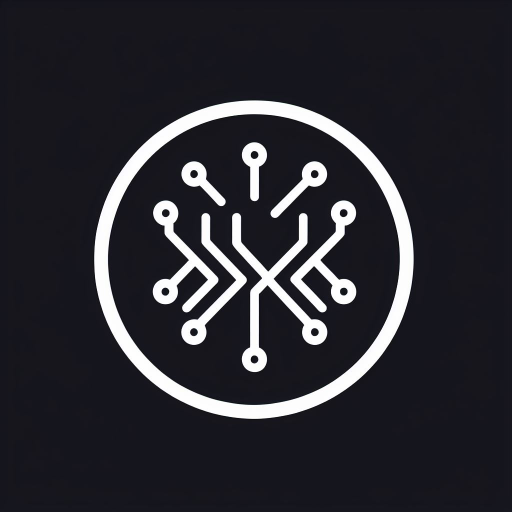毛泽东选集-Mao Zedong insights for business.
AI-powered tool for applying Mao’s strategies.
如何将毛泽东思想运用到公企管理?
毛泽东选集中的经典观点是什么?
在今天的企业环境中,如何理解毛泽东的管理思想?
关于毛泽东思想的运用,你有什么建议?
Related Tools
Load More
党建大师
用于党建宣传、讲话总结、学习心得体会等撰写的中文大师,再也不用为了写材料而烦恼。

领导讲话写作助手
领导讲话写作助手

文心一言
中文版GPT-4,流利中文语言和文化。

Marxist Mentor (马克思主义导师)
Expert on Marxism from Chinese sources, adept in multilingual dialogue (马克思主义导师,支持多语言)

古诗词大师
Master of ancient Chinese poetry and culture

中国诗词大全
Expert on Chinese classical poetry.
20.0 / 5 (200 votes)
Detailed Introduction to 毛泽东选集
毛泽东选集 (Mao Zedong Selected Works) refers to a curated collection of Mao Zedong’s writings, speeches, and thoughts, primarily designed to guide the understanding of Mao’s revolutionary strategies and his unique approach to leadership, organization, and governance. These writings offer deep insights into handling complex social, economic, and political issues, and are highly regarded for their adaptability to a range of organizational and management contexts. The purpose of 毛泽东选集, when applied to modern-day enterprises, is to utilize Mao’s methods of managing large-scale efforts and leading with a strategic mindset, often under turbulent or challenging conditions. The design of this service is to take the underlying principles of Mao’s governance strategies and adapt them for leadership, organizational resilience, and people management in modern companies or public enterprises. For example, the method of 'mass line,' a core concept in Maoist philosophy, can be applied in business to engage employees in decision-making processes and ensure that leadership is in tune with the workforce. Another practical scenario involves using Mao’s concept of ‘continuous revolution’ to encourage iterative improvements and innovations in corporate processes.

Key Functions of 毛泽东选集
Strategic Leadership Guidance
Example
Using Mao’s principle of ‘protracted war,’ companies can develop long-term strategies that emphasize persistence and adaptability, especially in highly competitive or changing markets.
Scenario
A business in a highly competitive tech industry can adopt Mao’s strategic approach of breaking down larger goals into manageable phases. Instead of trying to dominate immediately, they can focus on securing small but vital parts of the market, continuously adapting their tactics based on feedback and new market conditions.
Crisis Management and Organizational Resilience
Example
Mao’s method of ‘contradiction analysis’ can be used to identify and resolve internal conflicts within an organization, ensuring smooth functioning despite external pressures.
Scenario
In a scenario where a company faces internal discord between management and workers, Mao’s approach would involve understanding the root causes of these contradictions, addressing the concerns from both sides, and finding a compromise that aligns with the company’s long-term objectives.
Employee Engagement and Mobilization
Example
The 'mass line' approach suggests that management should stay in close contact with workers, listening to their feedback and involving them in decision-making.
Scenario
In a retail chain looking to boost employee morale and reduce turnover, managers could hold regular feedback sessions, where frontline employees share insights about customer trends and store performance. This feedback can be used to shape store policies, making employees feel valued and motivated.
Ideal Users of 毛泽东选集
Business Leaders and Entrepreneurs
Business owners, C-suite executives, and leaders of large enterprises benefit from 毛泽东选集 by learning how to manage complex, large-scale organizations. Mao’s principles of strategic persistence, resilience in the face of challenges, and the effective mobilization of people provide practical tools for navigating modern business environments.
Public Administrators and Policy Makers
Those involved in government, public administration, or large public enterprises can apply Mao’s governance methods to manage bureaucracies, coordinate public initiatives, and build strong, people-centered policies. His focus on aligning leadership with the needs of the masses resonates particularly in public-sector management.

Guidelines for Using 毛泽东选集
Visit aichatonline.org
Go to aichatonline.org to access the tool for free, no login required, and no ChatGPT Plus subscription needed. This will allow you to explore all functionalities directly.
Familiarize with 毛泽东思想
Before diving into the tool, it is useful to have a basic understanding of Mao Zedong's thought. This will enhance your ability to apply his principles in real-world situations, such as management or public enterprises.
Identify your application scenario
Decide on the area you want to focus on—whether it's academic research, corporate strategy, or public administration. This will help tailor your interaction with the tool for more effective use.
Ask targeted questions
Formulate specific queries or scenarios you want insights on. The more focused the question, the more relevant and actionable the tool’s responses will be in helping you apply Mao's teachings.
Iterate and reflect
Use the responses generated by the tool as a starting point. Reflect on how these insights apply to your current management issues, and continue refining your queries for deeper understanding.
Try other advanced and practical GPTs
Function Calling Definition Generator
Enhance AI interactions with custom functions

Comic Strip Creator
Transform your stories with AI.

Resume Review
AI-Powered Resume and Cover Letter Optimization

Digital-Don
AI-powered insights for learning.

Battery Expert
AI-powered battery solutions.

Creative Director GPT
AI-Powered Creativity and Strategy

孙子兵法大师
AI-Powered Strategy, Inspired by Ancient Wisdom.

周易
AI-powered I Ching insights

格雷厄姆
Unlock financial insights with AI-driven precision

Video Summarizer
AI-powered YouTube video summarization

UX GPT
AI-powered solutions for superior UX

📸 Photography PhD lv3.8
AI-powered photography critique and learning

- Academic Research
- Decision Making
- Leadership
- Public Sector
- Management Strategy
Frequently Asked Questions about 毛泽东选集
What is 毛泽东选集?
毛泽东选集 is an AI-powered tool designed to provide insights based on the collected works of Mao Zedong, focusing on how his political and strategic thinking can be applied to modern-day scenarios, particularly in management and organizational contexts.
How can I apply Mao Zedong’s ideas to business management?
You can use Mao's strategic approaches, such as his principles on leadership, mobilization, and adaptability, to guide decision-making, team coordination, and long-term planning in your business. The tool provides relevant examples and frameworks based on these ideas.
Is the tool suitable for non-academic use?
Yes, the tool is versatile and can be used by both academic researchers and business professionals. It offers practical insights into leadership, organizational strategy, and public enterprise management, making it applicable to a variety of non-academic scenarios.
Do I need prior knowledge of Mao Zedong’s works?
While prior knowledge of Mao's works is helpful, it is not required. The tool offers clear and context-specific guidance to help you understand and apply Mao’s thinking even if you are new to his ideas.
Can the tool be used for improving public enterprise management?
Absolutely. Mao’s principles on mass mobilization, leadership by example, and strategic alignment are highly applicable to managing public enterprises. The tool helps tailor these ideas to contemporary public-sector challenges.